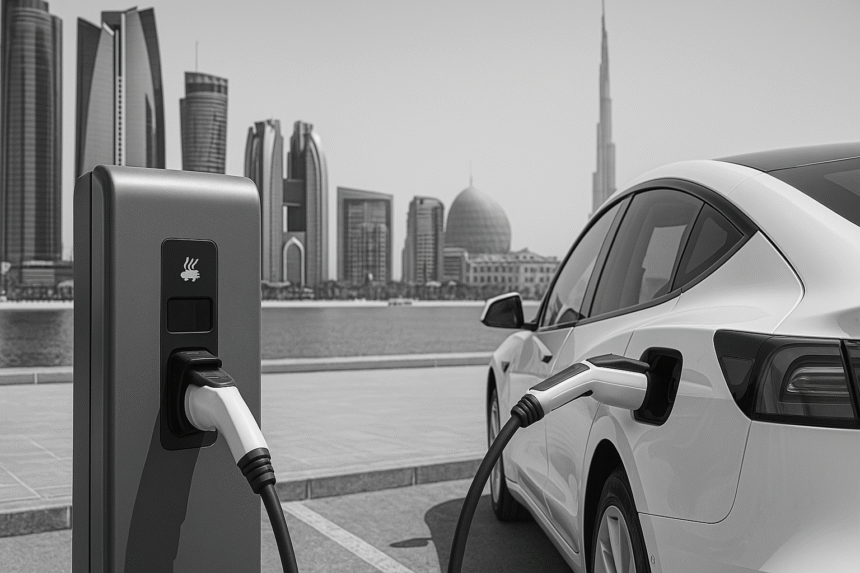Infrastructure Projects in UAE: Focus on EV-Readiness
As the UAE continues to position itself as a global leader in smart infrastructure and sustainable mobility, infrastructure projects in UAE are increasingly being designed with EV-readiness at their core. For executives, developers, and infrastructure providers, this is more than a trend—it’s a shift in national priorities and market expectations.
From smart city blueprints to dedicated EV zoning requirements, the UAE is integrating electric vehicle infrastructure into every phase of its development pipeline. Understanding this shift is crucial for private sector players seeking to align with government objectives, win contracts, and future-proof their investments.
EV-Readiness Is Reshaping Infrastructure Projects in UAE
Infrastructure today is no longer about roads and buildings alone. In the UAE, EV-readiness—the ability to support widespread use of electric vehicles—is now a critical part of urban planning and development approvals.
Major infrastructure projects, particularly in Abu Dhabi and Dubai, must include:
-
EV charger pre-installation conduits
-
Reserved parking zones for electric vehicles
-
Integration with smart grid systems
This applies to public buildings, residential communities, transport hubs, and retail developments.
Smart City Initiatives Accelerating EV Integration
Both Dubai and Abu Dhabi have long-term smart city strategies, and EV readiness is central to execution.
Examples:
-
Dubai 2040 Urban Master Plan requires developers to include smart mobility features.
-
Abu Dhabi’s Smart Mobility Program supports public-private pilots for EV fleets and shared transport.
-
Sharjah and Ajman are adopting similar EV-related mandates for new infrastructure.
These initiatives are not just about compliance—they offer a competitive edge for infrastructure companies that can deliver EV-integrated solutions early.
EV-Friendly Zoning and Planning Regulations
UAE municipalities are issuing new guidelines to enforce EV-friendly design standards:
-
Minimum number of EV-ready parking spaces per project
-
Technical compliance with DEWA/ADDC charger specs
-
Green Building Regulations that include EV readiness as a scoring factor
These requirements directly impact project eligibility for building permits, funding, and public-private partnerships.
For developers, this means EV infrastructure must be considered at the design stage, not retrofitted later.
Budget Allocations for Green Transport Are Rising
Federal and local budgets in the UAE now reflect a strong focus on sustainable mobility and EV adoption.
Recent allocations:
-
AED 500 million in Abu Dhabi’s 2024 budget for electric public transport
-
DEWA investment in the Green Charger network continues to grow annually
-
Etihad Rail and other mega-projects are integrating EV fleet support infrastructure
These numbers are not just symbolic—they represent real procurement opportunities for charging systems, construction, and energy systems integration.
The Private Sector’s Expanding Role
The UAE government is inviting private sector participation in EV infrastructure development through tenders, public-private partnerships, and pilot programs.
Opportunities include:
-
Charger supply and installation contracts
-
Fleet electrification consulting
-
Turnkey infrastructure development
In fact, many free zones and commercial developments now require private developers to deliver full EV-readiness solutions as part of their obligations to land authorities.
Case Study: Dubai’s Expo City
Expo City is emerging as a model for EV-ready infrastructure in the UAE. With a mix of residential, commercial, and tourism zones, the entire development is designed around:
-
A fully electric mobility ecosystem
-
Over 200 EV charging stations
-
Direct grid integration with DEWA’s Green Charger
Private infrastructure providers that contributed to Expo City’s success are now positioned as preferred vendors for other government-led projects.
Conclusion: EV-Ready Means Business-Ready
For infrastructure companies, EV-readiness is no longer optional—it’s expected.
As the UAE leads the Gulf region in building smart, future-proof cities, aligning your project capabilities with EV integration will directly influence contract wins, investor appeal, and long-term viability.
If you’re bidding on new developments or planning your next UAE project, now is the time to build in EV capability from the ground up.



Leave a Reply